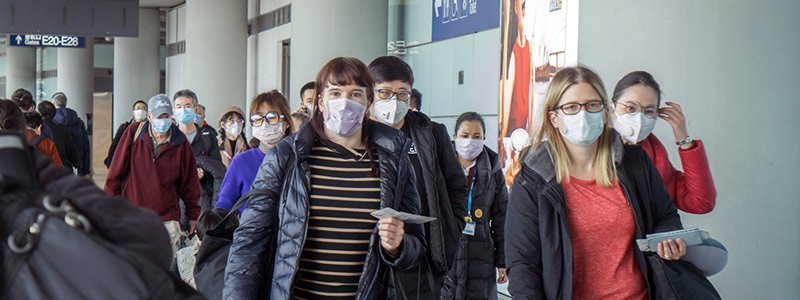Novel Coronavirus (COVID-19) Prevention: Frequently Asked Questions (answer)
Answers FAQ
Novel Coronavirus (COVID-19) Prevention: Frequently Asked Questions FAQs
Test your Knowledge!
- What is the Wuhan coronavirus?
- Wuhan coronavirus is the same virus as SARS. True or false?
- The Wuhan coronavirus transmitted by bats. True or false?
- What are symptoms of Wuhan coronavirus?
- Who is at risk for contracting Wuhan coronavirus?
- The average incubation period for Wuhan coronavirus is about 5 or 6 days. True or false?
- Antibiotics can treat Wuhan coronavirus. True or false?
- A flu vaccine can prevent Wuhan coronavirus. True or false?
- Is it safe to receive a package in the mail from China? Yes or no?
- The spread of Wuhan coronavirus can be prevented. True or false?
- Improve your Health I.Q. on Novel Coronavirus (COVID-19) Prevention: Frequently Asked Questions
- Novel Coronavirus (COVID-19) Prevention: Frequently Asked Questions Related Slideshows
- Novel Coronavirus (COVID-19) Prevention: Frequently Asked Questions Related Image Collections

Q:What is the Wuhan coronavirus?
A:The Wuhan coronavirus is a novel (new) coronavirus first identified in Wuhan, Hubei Province, China.
A novel virus is one that has not been previously identified in humans. The viral respiratory illness has been officially named 2019-nCoV or COVID-19 and has resulted in over 1.5 million confirmed cases and nearly 100,000 deaths worldwide, as of early April 2020.

Q:Wuhan coronavirus is the same virus as SARS. True or false?
A:False.
The Wuhan coronavirus and Severe Acute Respiratory Syndrome (SARS) come from the same family of viruses (coronaviruses), but they are not the same virus. Coronaviruses encompass a large family of viruses that can cause illnesses ranging from the common cold to more serious diseases such as SARS and Middle East Respiratory Syndrome (MERS).

Q:The Wuhan coronavirus transmitted by bats. True or false?
A:False.
The 2019-nCoV virus is transmitted from person-to-person contact with an infected patient, frequently through respiratory droplets when an infected person sneezes or coughs. There is no evidence the Wuhan coronavirus can spread from pets to people, and, despite a viral video claiming it can come from eating bat soup, this is not the case.
It is suspected that 2019-nCoV originated from an animal source (specifically, a snake) from a live animal market in China.

Q:What are symptoms of Wuhan coronavirus?
A:2019-nCoV infection symptoms include:
Most people recover in a week or two. In rare cases, the illness can be fatal.

Q:Who is at risk for contracting Wuhan coronavirus?
A:Those at highest risk for contracting 2019-nCoV include:
The elderly and those with pre-existing illness such as diabetes and heart disease seem to be at higher risk for developing severe cases of Wuhan coronavirus.

Q:The average incubation period for Wuhan coronavirus is about 5 or 6 days. True or false?
A:True.
The average incubation period (the time between infection and the onset of symptoms) for 2019-nCoV is estimated to be about 5-6 days but the entire incubation period ranges from 1 to 12.5 days and may be as long as 14 days.

Q:Antibiotics can treat Wuhan coronavirus. True or false?
A:False.
Antibiotics do not work against viruses, and the Wuhan coronavirus is no different. There is currently no specific medication to prevent or treat 2019-nCoV. Medications to relieve symptoms may be recommended.

Q:A flu vaccine can prevent Wuhan coronavirus. True or false?
A:False.
The flu vaccine is designed prevent influenza, another respiratory virus. It will not prevent coronavirus. There is no current coronavirus vaccine.
However, the Centers for Disease Control (CDC) recommends getting a flu vaccine and taking preventive measures to help stop the spread of germs.

Q:Is it safe to receive a package in the mail from China? Yes or no?
A:Yes.
There is no evidence that receiving a package that originated in China will put people at risk of getting the Wuhan coronavirus. Coronaviruses tend not to survive for long on objects such as packages or letters. There have not been any reported cases of 2019-nCoV in the U.S. associated with imported goods.

Q:The spread of Wuhan coronavirus can be prevented. True or false?
A:True.
There is currently no vaccine to prevent coronavirus infection, so the best way to prevent infection is to avoid exposure. Follow the same kinds of preventive actions you would for any virus:
Source quiz on MedicineNet
Improve your Health I.Q. on Novel Coronavirus (COVID-19) Prevention: Frequently Asked Questions
Novel Coronavirus (COVID-19) Prevention: Frequently Asked Questions Related Slideshows
- Coronavirus Slideshow: 10 Things You Need to Know
- Germs: Everyday Items with the Most Bacteria
- 10 Facts About Flu Shots
- See All Slideshows

